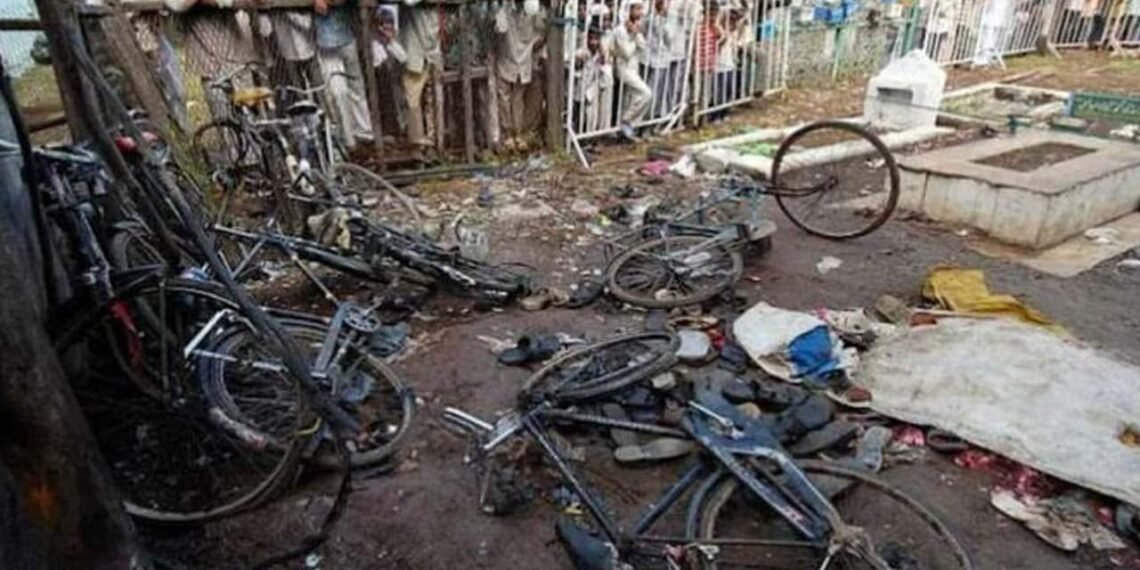With lives ruined, justice undone, and no accountability in sight, questions mount over whether India’s top probe agencies are serving justice—or political agendas.
BY PC Bureau
The acquittal of all accused in two of India’s most high-profile terror cases—the 2006 Mumbai suburban train blasts and the 2008 Malegaon bombings—has triggered nationwide introspection and alarm. At the heart of this growing concern lies a fundamental question: Are India’s premier investigating agencies failing the very purpose they were created to serve—delivering justice through impartial, scientific, and constitutionally sound investigations?
These back-to-back acquittals by Indian courts, including the Bombay High Court and a special National Investigation Agency (NIA) court, have not only upended two decades of legal proceedings but also deepened public scepticism about the competence, credibility, and political neutrality of agencies such as the Maharashtra ATS and the NIA.
Case Study 1: The 2006 Mumbai Suburban Train Blasts
On the evening of July 11, 2006, Mumbai was brought to its knees. In a matter of minutes, seven bombs exploded on local trains during peak hours, killing 189 people and injuring over 800. The attacks were the worst in the city since the 1993 blasts, and public outrage was immediate.
The Maharashtra Anti-Terrorism Squad (ATS) arrested 13 Muslim men, framing them as part of a Pakistani-supported Lashkar-e-Taiba conspiracy. Confessions were allegedly extracted, and the accused were booked under the stringent MCOCA and POTA laws, which offer limited legal safeguards for the accused.
READ : No One Guilty in Malegaon Blast — So, Who Killed the 37?
In 2015, a special court found seven guilty and handed out death or life sentences, while the rest remained under trial. But in a stunning reversal in July 2025, the Bombay High Court acquitted all 13, citing glaring lapses:
- Confessions were retracted and found to be inconsistent.
- No direct evidence linking the accused to the blasts.
- Procedural irregularities in arrests, custodial interrogation, and evidence collection.
- Allegations of torture and planted evidence were never adequately rebutted by the prosecution.
The court’s verdict dismantled the prosecution’s case and raised the spectre of systemic bias, wrongful arrest, and deeply flawed investigative procedures.
Case Study 2: The 2008 Malegaon Blasts
Two years later, in September 2008, a bomb exploded in Malegaon, a communally sensitive town in Maharashtra, killing six people and injuring dozens. Initially, Muslim suspects were arrested by the local police. But a dramatic shift occurred when the NIA took over the investigation, indicting Hindu nationalist figures such as Sadhvi Pragya Singh Thakur and Lt. Col. Prasad Purohit.
This marked one of the first times that right-wing Hindu terror was officially acknowledged in a terrorism case in India, and the case became a lightning rod for political debates. However, over the next 17 years, the prosecution faltered repeatedly—witnesses turned hostile, evidence was delayed or discredited, and the credibility of the investigation crumbled.
READ: Opinion | Manipur’s SIR–Erase the People, Then Their Votes
In July 2025, a special NIA court acquitted all seven accused, ruling that the prosecution had failed to establish guilt beyond reasonable doubt and that its case was riddled with inconsistencies.
Pattern or Coincidence?
Two landmark terror cases. Two different sets of accused—one Muslim, one Hindu. Both ending in total collapse of the prosecution’s narrative.
Coincidence? Or is there a larger pattern of politicised, incompetent, and prejudiced investigations?
Credibility in Crisis: Voices of Dissent
Legal experts and human rights organisations have come down hard on investigative agencies. Many believe these cases are symptomatic of a deeper institutional rot.
“When high-profile terror cases fall apart after decades of prosecution, it indicates more than just a mistake—it signals institutional failure,” said a retired Supreme Court judge on condition of anonymity.
Key concerns include:
- Communal profiling: Are Muslims disproportionately targeted in the early stages of investigations?
- Political interference: Do governments—regardless of party—pressure agencies to build narratives that align with their ideology?
- Shoddy forensics and training: Why are cases built on flimsy or manipulated evidence, often reliant on “confessions”?
- Lack of accountability: When officers are proven wrong in court, who pays the price?
The Human Toll
Behind every collapsed case lies two layers of suffering:
- The wrongly accused, who spend 10–17 years in prison, often in solitary confinement, branded as terrorists. Their lives, careers, families—shattered.
- The victims’ families, who are denied justice even decades later. For them, the question is both heartbreaking and chilling: If these men didn’t do it, who did? Why hasn’t the real perpetrator been found?
Impunity for Investigators
Despite the clear failings, not a single officer has been prosecuted, suspended, or even formally reprimanded for their role in these botched cases. No agency has issued a public apology. No compensation has been granted to the wrongfully incarcerated.
This culture of impunity shields officers who file false charges, fabricate evidence, or pursue politically motivated lines of inquiry.
A Wake-Up Call: What Needs to Change?
There is growing consensus among legal scholars and civil society that structural reforms are urgent and non-negotiable:
- Independent oversight mechanisms for ATS, NIA, and state police.
- Mandatory video-recording of all custodial interrogations to prevent torture and coercion.
- Insulation of agencies from political pressure through parliamentary and judicial checks.
- Improved forensic infrastructure and professional training.
- Fast-tracked compensation and rehabilitation for the wrongly imprisoned.
- Legal safeguards to prevent the misuse of terror laws against marginalised groups.
Conclusion: A Justice System on Trial
India’s terror investigations were once projected as the frontline of national security. But these recent acquittals raise a grim question: What happens when that frontline becomes a farce?
The criminal justice system has always carried the burden of “justice delayed is justice denied.” But now it faces an even darker crisis: justice manipulated is justice betrayed.
If India’s investigating agencies continue to fumble, falter, or follow political orders rather than facts, then it is not just justice that suffers—but democracy itself.














